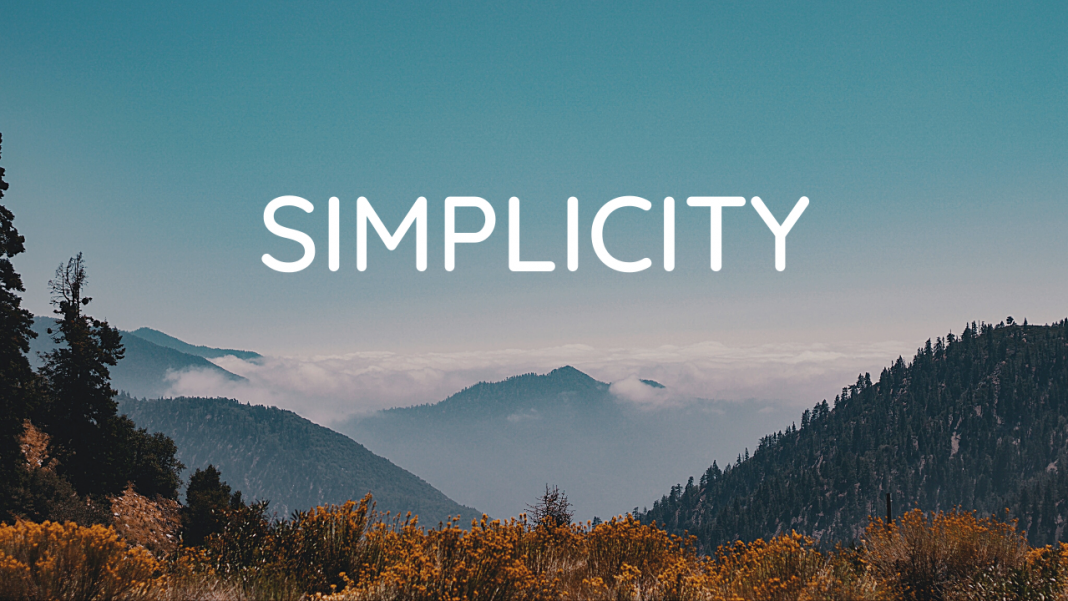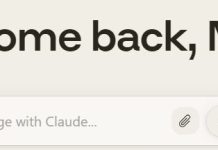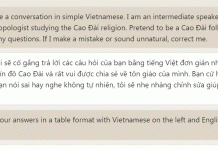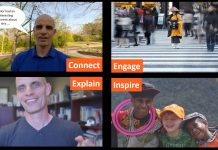Simplicity in course organization is absolutely essential at this time. So without further ado, here is how I am organizing my class. Note that every week is the same. Same schedule. Same assignments. Same point values.
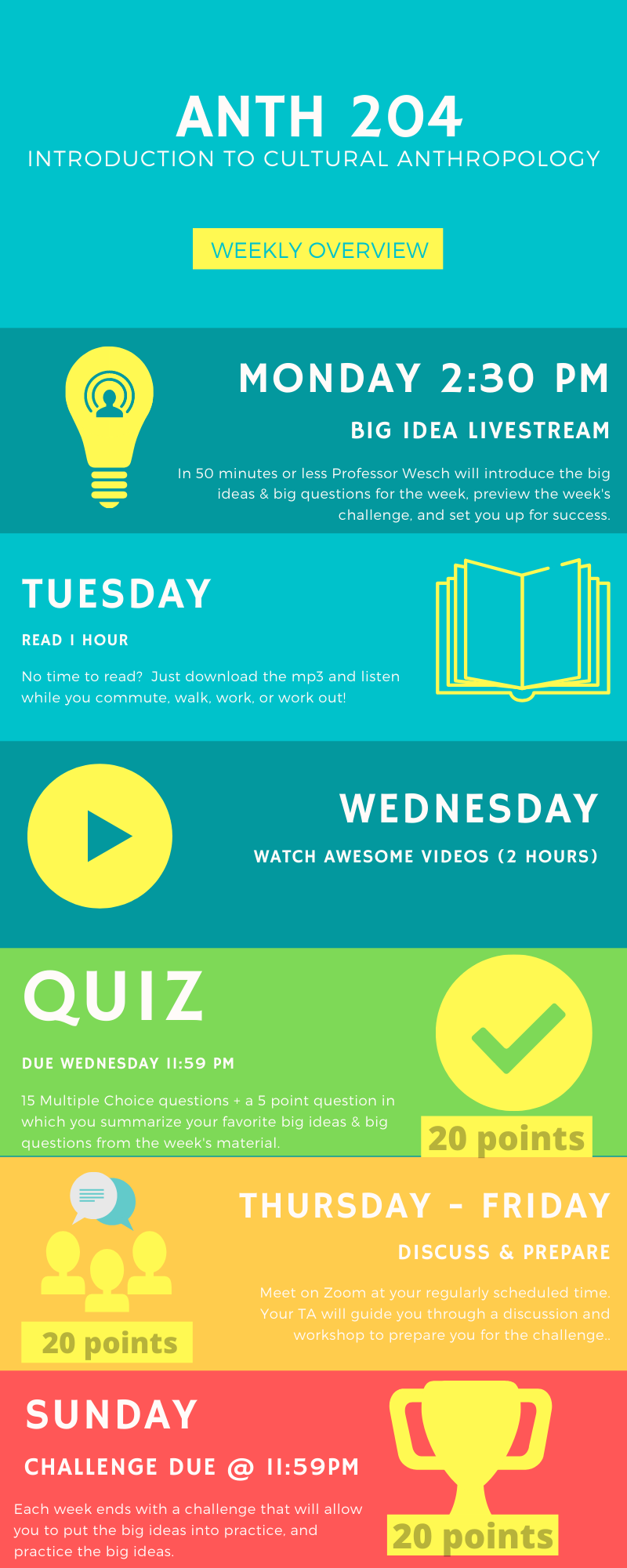
And here it is week by week, color-coded as above into green (content), orange (workshop/discussion) and red (challenge). Note the challenge adjustments due to Covid below as well.
Week 1: An Invitation to Anthropology
Discussion: What big questions do you want to pursue this semester?
Challenge: Introduce yourself in a short video.
Week 2: The Art of Seeing
Discussion: Analyze Humans of New York and top #anth101challenge1 posts. What makes your favorites stand out? How can you emulate those?
Challenge: Talking to Strangers / Adaptation: Can be someone from class or even a friend or family member. The key is to take a good portrait and share a moment or story that conveys something meaningful.
Week 3: The Art of Ethnography
Discussion: Apply the model of culture to a familiar cultural practice.
Challenge: Fieldwork of the Familiar: Can be a standard “Nacirema” assignment or can instead be an artistic “sensory ethnography” (capturing sounds of the neighborhood or focusing in on the textures and sounds of a room). The important thing is to practice the arts of noticing and representation.
Week 4: Evolution & Human Potential
Discussion: Workshop on the Worksheet
Challenge: Start 28 Day Challenge. Submit completed worksheet.
Week 5: Language
Discussion: Word-weaving & The 28 Day Challenge Worksheet (in faculty guide)
Challenge: Word-Weaving OR Start Learning a Difficult Language (any Level 3 or 4 language) Note that Navajo is available on DuoLingo (hat tip to Ryan Klataske).
Week 6: 12,000 Year History of Humanity
Discussion: UnThing Workshop Worksheet (in faculty guide)
Challenge: Declare UnThing and submit completed worksheet
Week 7: A Brief History of the Future: The Next 50 Years
Discussion: UnThing Cluster Brainstorming
Challenge: Full UnThing Reflections Due
Week 8: Gender & Sexuality
Discussion: “Other” pairings & empathic listening discussion on gender & sexuality
Challenge: 28 Day Challenge Reflection Due
Week 9: Love & Marriage
Discussion: Love & Core Values Discussion & Worksheet (faculty guide)
Challenge: Document your own family with kinship chart and “a love story,” noting how the love story is shaped by cultural ideas, ideals, and gender roles.
Week 10: Religion & Wisdom
Discussion: “Other” pairings & empathic listening discussion on religion
Challenge: Try a different religious practice: meditation, yoga, tai chi, prayer, contemplative prayer or other religious practice that is unfamiliar to you.
Week 11: Is there a Universal Morality?
Discussion: “Other” pairing discussion
Challenge: Deep Interview with your “Other” (someone from class or in your life who has radically different beliefs and/or politics from your own)
Week 12: Fairness & Inequality in Culture
Discussion: Open Discussion on The Election & Inequality
Challenge: Discuss the election results with your Other. Collaborate to come up with at least 3 ideas or ground rules for how to have difficult conversations on how to approach and solve complex human problems (i.e. “politics”).
Week 13: Global Inequality – Cause-Solutions and Solution-Causes
Discussion: Complete “6 Degrees’ Worksheet
Challenge: Write a Thank You letter to someone who helped create something you own.
Week 14: What is the Good Life? Are there Univeral Human Values
Discussion: Workshop on Storytelling and Values
Challenge: Write a short story of yourself or about someone else using techniques from this class.
Week 15: Bending the Arc
Discussion: Workshop with Review Worksheet reflecting on all that you learned this semester
Challenge: Submit completed Review Worksheet
FINAL PORTFOLIO (100 points): Submit your final portfolio that includes 3 to 5 of your favorite take-aways from each week.
Grading system:
60 points / week x 15 weeks = 900 points + 100 point final portfolio
A few notes:
- There is a clear weekly rhythm to avoid stress & confusion.
- Quiz, Discussion, and Challenge represent 3 different forms of learning and are equally weighted for simplicity and balance.
- The discussion / preparation workshop serves as a bridge between the quiz (what is learned) and the challenge (application).
- There are “live” events but they are all recorded for later viewing.
- There are “live” discussions but also asynchronous alternatives.
- Fun weekly challenges that often have visual shares (photos and videos) help build community
